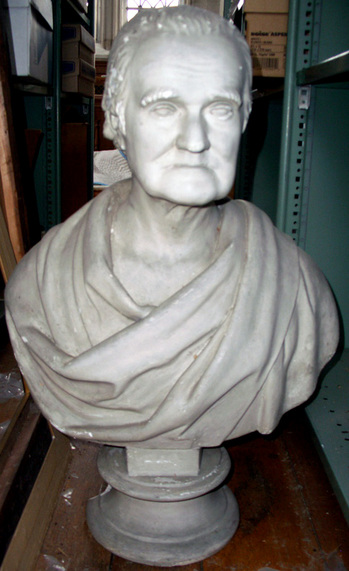Yale graduate Noah Webster, Jr. (1758-1843) is responsible for changing the word “colour” to “color” and “musick” to “music.” Webster wrote the first American dictionary, entitled A Compendious Dictionary of the English Language (1806) and followed it with An American Dictionary of the English Language (1828).
Before the age thirty, Webster had already published a three volume study: A Grammatical Institute of the English Language, including a speller (1783), a grammar (1784), and a reader (1785).
In its first fifty years in print, the speller sold 15 million copies.
Not all his ideas were accepted. In “An Essay on the Necessity, Advantages, and Practicality of Reforming the Mode of Spelling …”, Webster described the alterations he wished to make. Here are a few:
1. The omission of all superfluous or silent letters; as a in bread. Thus bread, head, give, breast, built, meant, realm, friend, would be spelt, bred, hed, giv, brest, bilt, ment, relm, frend.
2. A substitution of a character that has a certain definite sound, for one that is more vague and indeterminate. Thus by putting ee instead of ea or ie, the words mean, near, speak grieve, zeal, would become meen, neer, speek, greev, zeel.
3. Thus ch in French derivatives should be changed into sh; machine, chaise, chevalier, should be written masheen, shaze, shevaleer; and pique, tour, oblique, should be written peek, toor, obleek.
Attributed to John Henri Isaac Browere (1792-1834), Bust of Noah Webster, no date. Casting plaster. Gift of Mrs. Theodore L. Bailey. Ex 4766
